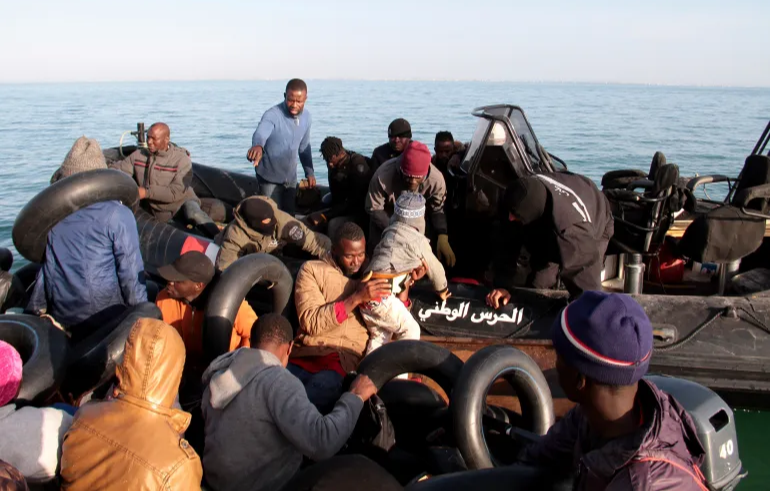
At least 951 have died trying to reach Spain by sea so far this year
Madrid, July 7 (RHC)-- At least 951 people, including 49 children, have died while trying to reach Spain by sea in the first six months of 2023, according to a monitoring group. In a report released on Thursday, Caminando Fronteras (Walking Borders) said the people lost at sea hailed from 14 countries: Algeria, Cameroon, Comoros, Democratic Republic of the Congo,Ethiopia, Guinea, Ivory Coast, Mali, Morocco, The Gambia, Senegal, Sri Lanka, Sudan, Syria and The Gambia.
The group, which compiled its findings from official sources, refugee communities and rescue organisations on the ground, said 19 boats went missing with all the people on board between January and June. The access route to Spain via the Canary Islands accounted for the highest number of recorded deaths, with up to 778 people losing their lives in 28 incidents.
“Meanwhile, on the Alboran route, the two tragedies recorded in this period bring the number of victims to 21. As for the Algerian route, eight tragedies are known to have occurred, resulting in 102 victims. Finally, on the Strait of Gibraltar, 11 tragedies left 50 people dead,” the report said.
February and June were found to be the months with the highest number of casualties – with 237 and 332 people, respectively. The organization said that official Spanish figures show fewer boats arrived in the first six months, but that 13 more people died than in the first six months of last year.
Spain‘s Interior Ministry says 12,192 people arrived by boat in the first six months, four percent fewer than in the same period last year.
Caminando Fronteras blamed Spain and Morocco for a lack of coordination and for failing to conduct search-and-rescue operations in time. It also listed other factors that led to the tragedies, including the inadequacy of resources, and bad practices in rescue operations. The group said the two countries were more concerned with “politics” than with rescuing those stranded at sea.
“The politics of death have been in place on the border for a long time. But we have also detected an increase in impunity in the face of rising death rates, which leaves victims and their families without access to reparation and justice,” said Helena Maleno Garzon, founder and director of Caminando Fronteras.
The organization gave the example of a June 21 incident that took place about 160 km (100 miles) off the Canary Islands in the Atlantic Ocean. Twenty-four people were rescued and two bodies – a man and a child – were retrieved after a boat sank in waters off Morocco’s coast, but at least 36 people disappeared. The group said a Moroccan rescue ship did not arrive until 10 hours after the first warnings were sent out about the boat.
Even those who survive are subject to human rights violations, Caminando Fronteras said. Some suffer “imprisonment, forced displacement, physical attacks and detention”, it added. Those whose bodies are retrieved are mostly buried without dignity and respect for their religious beliefs in mass graves, with a lack of identification protocols, the group said.
Since 2018 more than 11,200 had died or were missing after having tried to reach Spain – an average of six a day – Caminando Fronteras said in a report published at the end of 2022.

